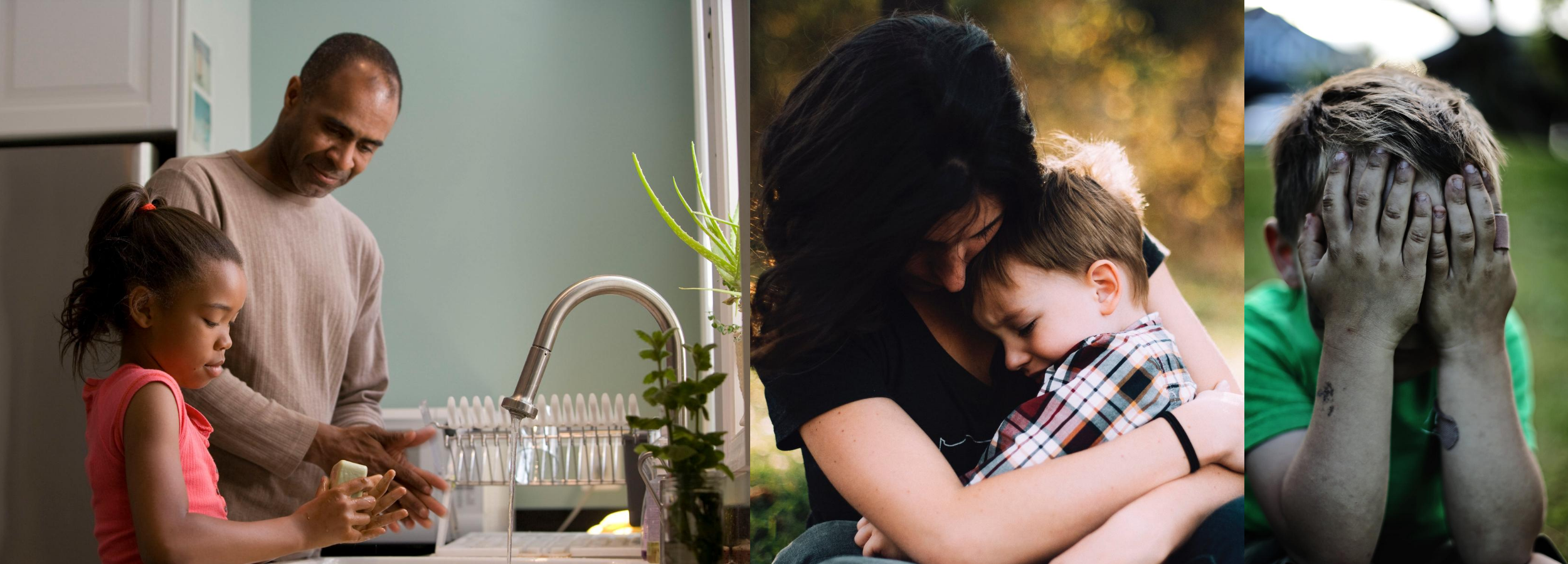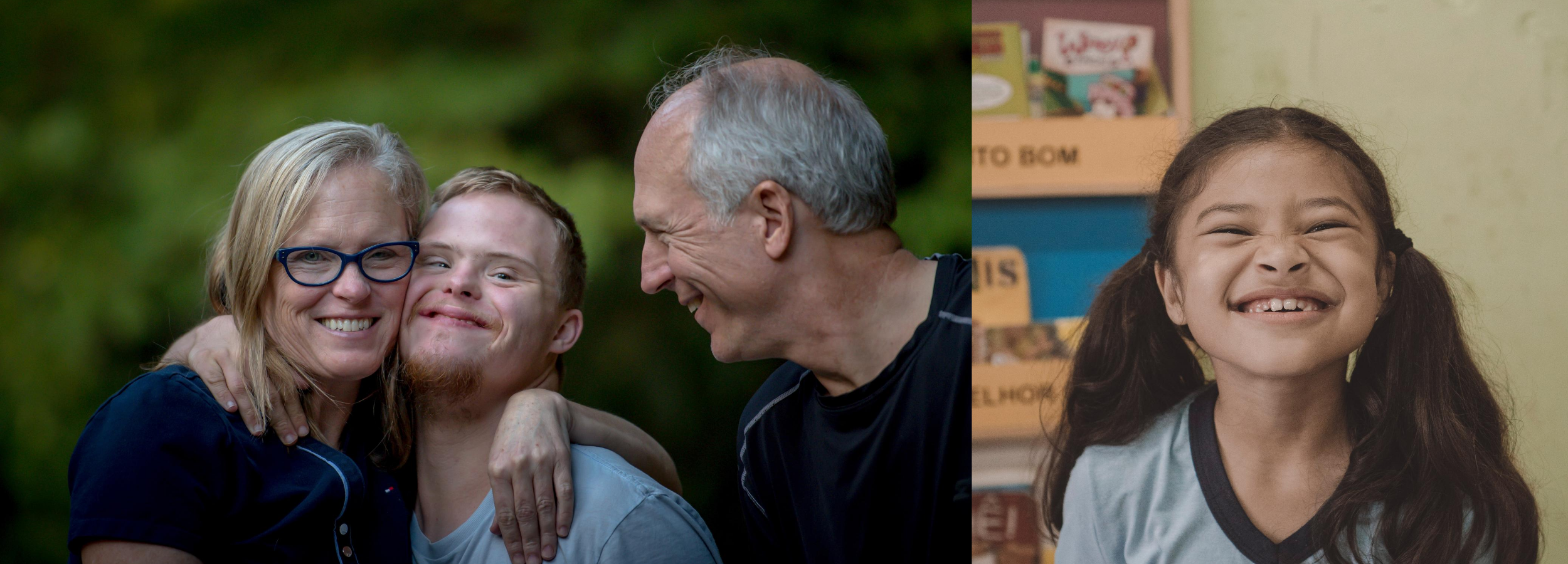Some individuals are “sensitive,” “out of sync” or “explosive” – all words used to describe young people who are easily overwhelmed. These children especially benefit from loving support when they are distressed. As a parent of such a child and a child development specialist, I like to learn how to help my child and others like her. I hope you find what I have learned helpful when supporting young people who have exhibit challenging behaviors.
Below is an emotional support model that I developed based on brain research and advice from experts. I discovered three things that individuals need from adults, especially in moments of distress. These are the three “C”s in my framework:

The first “C” – Connection
"It's not enough to love the children. It is necessary that they are aware that they are loved."
- St. John Bosco
Children need to feel loved the most when they are acting in non-loving ways. The child having a tantrum or meltdown – or even lashing out at others is really telling us, “I can’t handle this emotion or situation alone.”
Think of challenging behaviors as an opportunity to connect with a child on an emotional level. When an individual is upset, remain present. Separation can escalate anxiety and fear. In a gentle and soothing voice, reassure the person that you love them no matter what.
Here’s a helpful poem to help adults connect with a distressed child. The poem is an adaptation of the song in Robert Munch’s wonderful 1995 book, Love You Forever:
I’ll love you forever
I’ll like you for always
As long as you need me
Your helper I’ll be

The second “C” - Calming
To help calm another, we must first calm ourselves. For me, this is the hardest part! Since I often lose patience when my child misbehaves, I call on God for help. I composed a “centering prayer” that helps me regain my composure. To feel the strength of Father, Son and Holy Spirit, I take three slow, deep breaths and I pray:
Safe in the Spirit
Beloved by God
I can do all things through Christ.
This prayer is adapted from a technique I learned from Dr. Becky Bailey, founder of Conscious Discipline®. She recommends we give our brain cues to calm the fight, flight or freeze response so that we can think clearly. “I am safe, I am loved, I can handle this,” are words she has used.
Once we are calm, we can then use relaxation strategies with others. Breathe deeply, talk positively, notice what is happening in the person’s body. Use techniques that work best to calm that unique individual, especially when they are young. Try hugging, rocking, singing, blowing bubbles, or reducing sound or light levels. Talk less, breathe more!

The third “C” - Compassion
If we believe children are doing the best they can under the circumstances, it is easier to give them empathy and compassion. As Dr. Ross Greene tells us in his Collaborative & Proactive Solutions® (CPS) model of care, “Kids do well if they can.”
We can give distressed individuals empathy by using reflective listening. If a person is acting out physically, notice their facial expression or body movements. Vocalize the changes in their body during the fight, flight or freeze response: “Your face is red, your fists are clenched, and your breathing is really fast.”
If the person is crying, name-calling or yelling, communicate what you think they are feeling. Take your best guess and do not be afraid to use different words to accurately label the feeling. Young people can begin to learn the difference between contentment and excitement, frustration and exasperation, worry and fear.
If the person is able to communicate what is bothering them, empathize with what they are saying: “It’s hard when things don’t go your way.”
After giving empathy, show compassion by trying to ease the individual’s discomfort. State, “I’m here to help.” The goal is to help them work through an uncomfortable feeling. The is not the same thing as giving in to specific wants; you can still maintain expectations (the person still has to clean up, or come inside, or meet any other expectation that triggered the behavior).
Attentive support can help a distressed person become emotionally strong. As we connect, help them calm and offer compassion, we demonstrate that they are loved unconditionally by us and by God.
Diane T. Goyette, M.A.
Visit www.earlychildhoodspecialties.com to learn more.
The content contained in this post and on this site are the opinions of the individual author and do not necessarily reflect the official policy or position of the National Catholic Partnership on Disability.
© The National Catholic Partnership on Disability 2020

